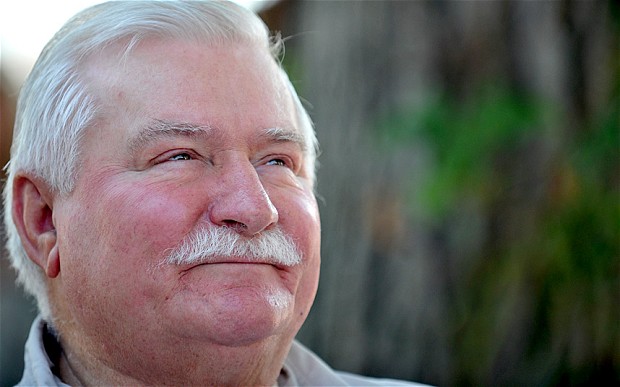|
Delegates at the European Academy of Management conference were treated to an inspirational keynote speech by Lech Wałęsa, co-founder of Solidarity, Nobel Peace Prize winner and former President of Poland. His comments, in Polish, were translated by a very impressive translator. Wałęsa continued by looking to the future. He challenged—hard—both the communist system that dominated the Eastern bloc and the capitalist system that dominates the West. He asserted that to replace one form of evil with another was not good. Rather, European unity should be the goal, but that requires people to get together to talk and to listen. Wałęsa stressed the importance of values as a crucial foundation to enduring peace. Wałęsa's talk was inspirational, to the extent that the impact of his contributions on the lives of ordinary Polish people and the wider Eastern bloc has been huge. However, Wałęsa's rhetoric, while eloquent, strayed a little at times. Some of his comments were thinly-veiled political statements that, in another context, could have been interpreted as calls to action. Notwithstanding this, one of his calls, for a new generation of leaders to rise up to continue to fight to freedom and unity was clear and unambiguous. It's a pity that more business leaders and company directors were not present to hear it! Although unstated, the implication of Wałęsa's call was clear: leaders need to know when to lead and when to let go. Wałęsa started with the claim "I am a revolutionist!" He regaled the largely academic audience with stories of 'great divisions'; of 200 men who fought for change against 200,000 Soviet soldiers with little success; and, of the tipping point provided by a papal appointment and subsequent visit. Within a year of Pope John Paul II's appointment, Wałęsa had gathered over two million supporters. Change became possible. "I want you to believe." Soviet soldiers watched the rallies as the people cheered for their Polish Pope. They even made the sign of the cross across their chests, something that surprised Wałęsa but gave him hope that change might be possible. Indeed it was, and indeed is happened. After speaking for 45 minutes, Wałęsa answered audience questions for another 45 minutes (he skilfully avoided answering any provocative questions, including one about Vladimir Putin). All too soon, the allotted 90 minutes was up. Wałęsa needed to catch a plane. He remains in demand as an international speaker on politics and history.
0 Comments
Leave a Reply. |
SearchMusingsThoughts on corporate governance, strategy and boardcraft; our place in the world; and other topics that catch my attention. Categories
All
Archives
May 2024
|
|
Dr. Peter Crow, CMInstD
|
© Copyright 2001-2024 | Terms of use & privacy
|


